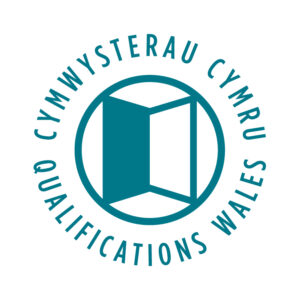Building a qualifications system for the future
by Philip Blaker, Chief Executive, Qualifications Wales
Date:
16 09 2025Authors:
Tagged by:
Share:
Some reading this blog will have come across the expression VUCA before, others may not, but we live in a VUCA world – one that is volatile, uncertain, complex and ambiguous.
Globalisation has led to some sense of social dissatisfaction, driven by a feeling that others are benefiting from a society that is not delivering for me as an individual. International economic competition is getting greater and certainly becoming more of a political hot potato – especially with increased focus on tariffs being used as an international political tool.
This pressurised environment leads to an increased national imperative to respond to the need for economic growth, supported by a highly skilled and capable workforce. There are multiple reports from many well-respected thinktanks that cite the problems with achieving this well – though few offer any meaningful or deliverable solutions.
Pre-16 there is a national curriculum, which provides a framework from which qualifications can be designed. The overall model for education reforms in Wales, based on the new Curriculum, lends itself to a centralised approach to designing the qualifications system and we’ve been working on National 14-16 Qualifications since 2019, and the first new GCSEs are now being taught from this September. The new range of qualifications will be related to the curriculum, available in Welsh and English, and offer a coherent and inclusive range with – as far as possible – something for everyone. Importantly, certainly in the context of economic growth and societal impact, it will include a suite of skills for life and work qualifications and a more focused approach to vocational learning through the introduction of VCSEs.
However, we don’t have the same ‘north star’ for post-16 education. There have been various reports about the ‘post-16 curriculum’ but it’s still unclear what we actually mean by that term – the construct of a post-16 curriculum is complex and poorly defined. In reality the post-16 curriculum is described through the range of qualifications and programmes of learning in full-time FE, apprenticeships, adult learning and business-led training. Some of this sits within Qualifications Wales’ regulated environment, and some, for example ‘vendor qualifications’ in areas such as IT, doesn’t.
Because the post-16 landscape is so complex, the centralised approach we’re adopting pre-16 will be difficult to implement.
What are the difficulties?
Expensive to implement – just look at the cost of T level implementation in England
One size rarely fits all – that’s why Qualifications Wales has historically taken a sector-by-sector approach
Slow to change – unfortunately all centralised approaches cause delay unless extraordinarily well-resourced, and also tend to lack agility.
So what are the solutions?
There are no simple answers for any one part of the education sector to enact, instead the education sector needs to respond as a whole, with qualifications being just part of a coherent approach.
For qualifications, that means we need an environment that encourages market forces to respond quickly to evolving needs. But that will be a challenge if our needs are niche, as the market in Wales is relatively small and viability has to be considered. We need to be realistic about what can be achieved on our own.
If we look at AI as an example – the impact and application of AI across sectors is going to vary widely and the only likely constant will be the speed of change: it’s going to accelerate exponentially. Qualifications can’t be the principal answer to building AI competence, as we’ll never be able to keep up with the pace of change. The qualifications system can look at something very generic to build knowledge and understanding of AI and its ethical use. But that’s unlikely to be enough and the education sector as a whole needs to look at more flexible means to respond to new national and local needs – including the needs of adult learners who may be up-skilling or changing sectors.
My personal view is that we need to have more space in whatever we conceptualise, and fund, as a post-16 curriculum to allow flexibility to meet dynamic local or sector specific needs. This means recognised, flexible and valued space alongside qualifications to allow providers to contextualise teaching and learning so that it is up-to-date and relevant.
As the qualifications regulator, this doesn’t mean abdicating our responsibilities, and I’m sure that qualifications will be able to play some part in accrediting learning in this space – but it does mean we need to be realistic about what can be achieved through qualifications alone and return to an era when education was broader than a narrow focus on the attainment of qualifications.
